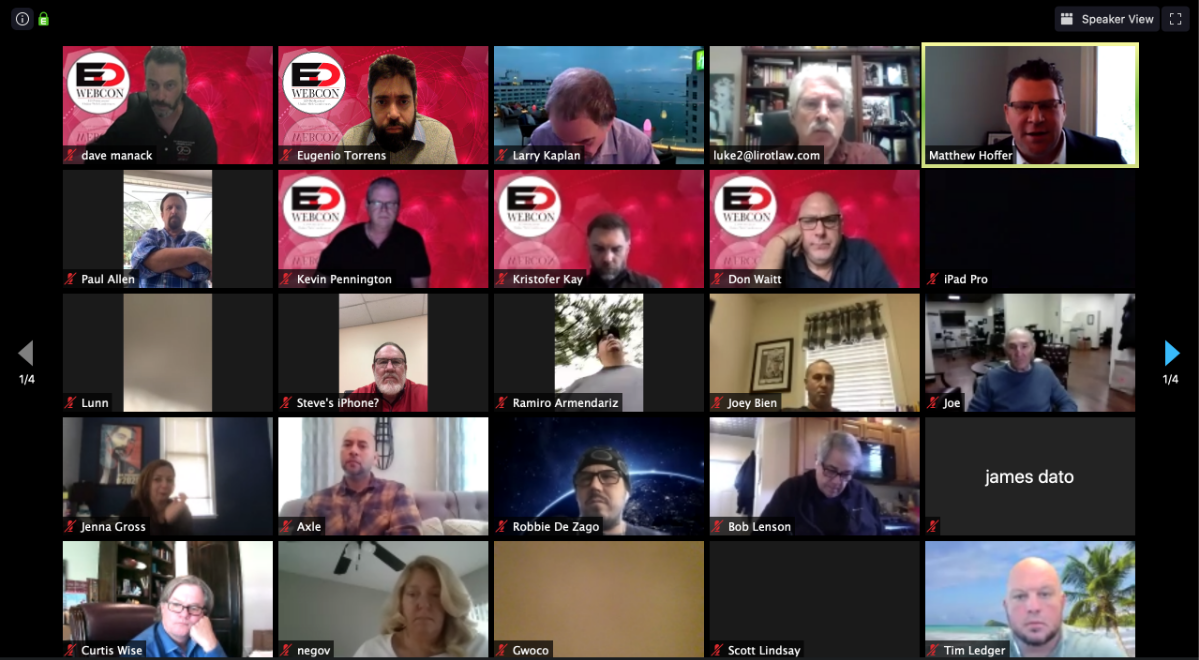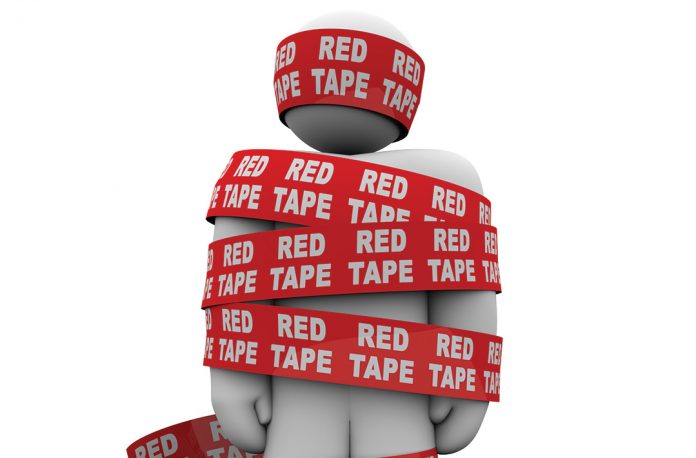In a period of uncertainty, one nugget does seem to shine as immutable truth: businesses need fiscal help if they’re closed and unable to generate any revenue. Gentlemen’s clubs, however, are no stranger to being bumped to the back of the line in cases like these, most often because of a moral grudge. Case in point, the Small Business Administration (SBA) and Payroll Protection Program (PPP) money that was being churned out by Congress through the CARES Act.
The problem? Some clubs have already been denied because they are deemed to present entertainment of a “prurient interest” (read as sexually charged/erotic).
For the April 16 ED Webcon, ED Publications had attorneys Luke Lirot and Matt Hoffer speak on the issue of SBA and PPP loans and the legal challenges they are already spearheading to combat the loan denials. There were 100 entrants into this Webcon, which was the maximum allowed by Zoom. Note: ED Publications has upgraded the capacity for future Webcons to 300 entrants.

Some key takeaways from the meeting:
Matt Hoffer said he believed the first lawsuit in the country, filed in the Eastern District of Michigan, challenged SBA regulations adopted to guide SBA lenders in administering the PPP program.
The problem, Hoffer explained, was the CARES Act requires SBA regulations for lenders be adopted within 72 hours to guide banks implementing the program. Because of that accelerated timetable, gentlemen’s clubs have been widely cast aside for violating “prurient interest.”
“Your workers deserve the relief just like anyone else’s workers do. To disqualify them based on the entertainment that takes place at your club is, in our view, a violation of the First Amendment and also the Fifth Amendment.”
— Attorney Matt Hoffer
“A lot of folks don’t know what that term means,” Hoffer said. “I think even a lot of attorneys may not know what the SBA meant when it used that term.”
He said he’s generally seen clubs get one of three responses from lenders:
- Lenders won’t give them the time of day, “Your business isn’t eligible, don’t bother applying, we’re not taking your application.”
- Other banks have taken applications but have denied the loans.
- There are banks out there taking the applications and processing the loans.
Hoffer pointed out he has made a point not to sue banks in Michigan in his legal proceedings, just the SBA, citing pre-existing tensions between clubs and banks stemming from Operation Choke Point.
“All clubs have the same issues getting lenders who will accept their business,” Hoffer said. To turn around and sue that lender could be a bigger problem for the club than anything.”
In going after the SBA, Hoffer explains administrative agencies (SBA) don’t have the power to legislate like Congress.

The gist of the legal argument is that the SBA doesn’t have the jurisdiction to deny clubs because of the entertainment going on inside clubs.
“Your workers deserve the relief just like anyone else’s workers do,” Hoffer said. “To disqualify them based on the entertainment that takes place at your club is, in our view, a violation of the First Amendment and also the Fifth Amendment.”
“It was a really good example of the way guys like you make the sacrifice necessary to protect the people in this industry,” Lirot said to Hoffer.
Lirot stated that he had been fielding a wider array of calls; some mentioned the fear of concealing the club’s nature, others mentioned writing letters to banks explaining “prurient.”
Webcon moderators helped direct questions to Lirot and Hoffer via the “chat” function on Zoom, where entrants sent chats to the entire group or to the moderator (ED’s Dave Manack) directly. Many of those in attendance wanted to know what recourse they have if they’re denied for a loan by a bank, or how to handle the “prurient” question in the SBA loan application.
“You’re absolutely not committing fraud when you submit the application if you don’t check off that you’re involved in any kind of business that presents prurient types of expression or any of those disclaimers,” Lirot said.
Lirot quoted one rejection from a banker: “Just to clarify, the SBA/PPP portion of the CARES Act didn’t specifically exclude adult businesses, the standard SBA exclusion of adult businesses itself is what made them ineligible. It has nothing to do with your PPP loan. Does that make sense?”
“The answer is no,” said Lirot in the Webcon, explaining the SBA loaning things for the benefit of business is completely different than disaster relief, which should apply to everybody. “They shouldn’t be picking and choosing.”
For more information on the ED Webcons, be sure to follow ED’s social media pages, including Facebook, Twitter and Instagram, visit ExoticDancer.com, and email ED’s Dave Manack at dave@edpublications.com.





























